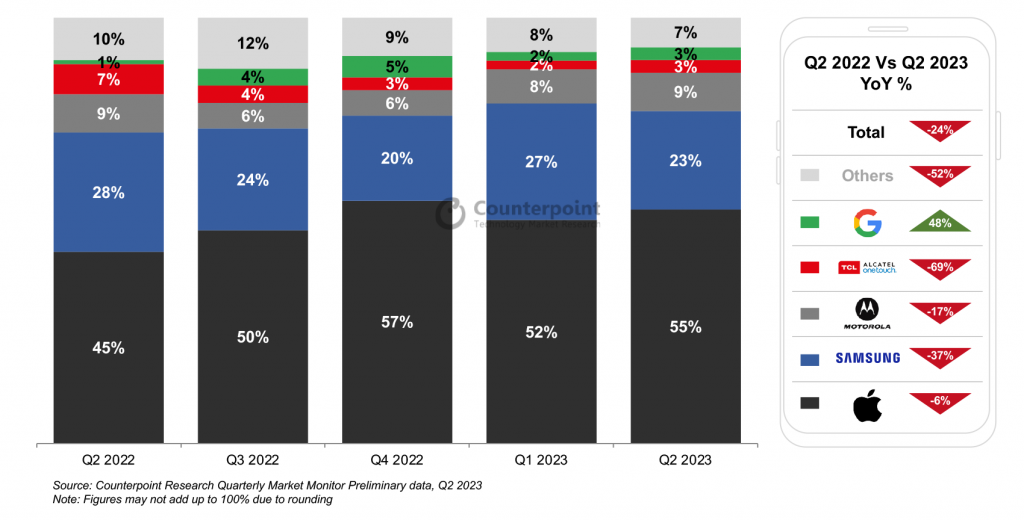
US iPhone market share increased to 55% in Q2, thanks to a sharp fall in shipments of Android smartphones.
However, the market intelligence report says that Apple’s resilience in a declining market was significantly helped by carrier promotions …
A tough quarter
Counterpoint Research says that the second quarter of the year was a tough one for the US smartphone market as a whole. Smartphone shipments declined by 24% year-on-year, with major Android brands taking the biggest hit.
Commenting on the decline in smartphone shipments, Research Analyst Matthew Orf said, “Consumer demand for smartphones was tepid in Q2 2023, with the summer slump in sales coming early. Despite inflation numbers falling through the quarter and ongoing strength in the job market, consumers hesitated to upgrade their devices amid market uncertainty.”
Alcatel suffered the worst decline, with a year-on-year fall of 69%. Samsung’s shipments fell 37%, and Motorola was down 17%. Google was the only winner, thanks to the launch of the Pixel Fold.
US iPhone market share in Q2
Apple wasn’t immune to market stagnation, seeing iPhone shipments fall 6% year-on-year. Given that this was a much smaller fall than that experienced by most Android brands, however, that meant Apple was able to increase its US market share by a full ten points, from 45% in Q2 last year to 55% in the same quarter this year.
Apple also saw a more modest increase in market share on a quarterly basis, up from 52% in Q1.
Counterpoint did note that this was heavily influenced by carrier promotions.
Apple’s resilience was driven by strong promotions across postpaid and prepaid. Verizon, AT&T and T-Mobile continued to offer $800+ promo credits for the iPhone 14 while old-generation iPhones were also steeply discounted across prepaid. We are seeing no weakness in the overall promotional activity.
That isn’t limited to iPhones, however. The firm noted that both the Google Pixel Fold and Pixel 6a were “heavily subsidized in prepaid channels.”

Photo: Samuel Angor/Unsplash
FTC: We use income earning auto affiliate links. More.



